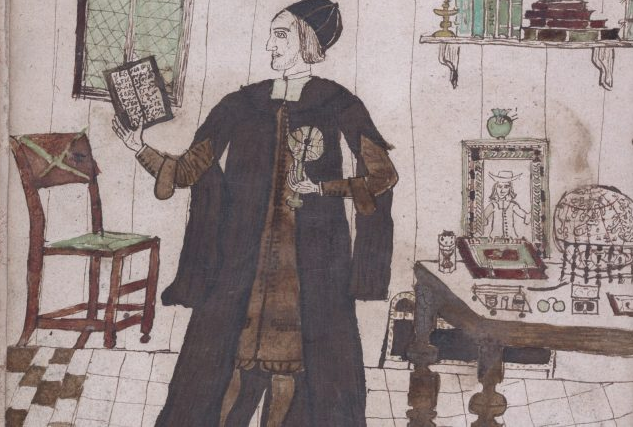 International Conference at UCLA: "The Quest for Certainty in Early Modern Europe: From Inquisition to Inquiry, 1550–1700."
International Conference at UCLA: "The Quest for Certainty in Early Modern Europe: From Inquisition to Inquiry, 1550–1700."
Organized by Mercedes García-Arenal (PI of the CORPI project), Barbara Fuchs (University of California, Los Angeles), and Carlos Cañete (ILC, CCHS-CSIC)
How was the early modern pursuit of knowledge in very different spheres conditioned by a shared desire for certainty? How did this desire in turn link the epistemological crises produced by the religious upheavals of early modern Europe with the development of new scientific methods? This conference recontextualizes the production of knowledge in the early modern period (1550–1700), focusing on the social and institutional dimensions of academic practices in light of political and cultural challenges.
The conference addresses the quest for certainty in early modern Europe in relation to religious processes, exploring how conflicts and uncertainty affected religious identities (and even the status of irreligion) and challenged traditional ways of learning. We consider how knowledge of all sorts was integrated into different cultural and religious traditions in unprecedented ways, forcing religious authorities to seek new means of controlling and regulating “truth.” Last but not least, we pay close attention to problems of representation, and to how the arts mediated and reflected on production of knowledge and its relation to religion.
Much like other historical processes, the quest for knowledge was shaped in its institutional, social, and cultural dimensions by specific contexts. Although there has been ample focus on the early modern religious and intellectual upheavals that shaped a burgeoning European “modernity,” central questions have gone unasked—much less answered—as the different disciplines have focused largely on their internal development and the concomitant debates and institutions. What has not been recognized is the major role that religious conflicts of the period played in intellectual debates and academic practices.
The processes of confessionalization and mass conversions that attempted—with very mixed success—to regularize religious practices and beliefs simultaneously resulted in the spread of anxiety, doubt, and indeterminacy over the very essence of contemporary religious practices and beliefs. This indeterminacy paved the way for the expansion of the boundaries of knowledge in all scholarly domains—theology, science, history—while at the same time leading to conflicts with religious authorities, who feared the consequences of unfettered research to accepted norms and dogmas. This in turn led to the complex reflections on truth and perception that we deem the literary baroque.
Given that these problems were shared by all denominations, we propose for this conference a comparative approach that expands our understanding of the nature of intellectual life in Europe during the early modern period. This conference focuses on the period from the mid-sixteenth century—when the effects of both religious conflicts and mass conversions where already being felt—to the late seventeenth century, a moment of religious normalization that also saw the consolidation of modern practices of learning. The conference focuses on the Iberian Peninsula and early modern Hispanic world, in comparison with broader European and colonial contexts.
Speakers
Adam G. Beaver, Harvard University
Carlos Cañete, Consejo Superior de Investigaciones Cientificas
Barbara Fuchs, University of California, Los Angeles
Carina L. Johnson, Pitzer College
Maríaluz López-Terrada, Consejo Superior de Investigaciones Cientificas
Anna More, Universidade de Brasília
Anthony Ossa-Richardson, University of Southampton
Fernando Rodríguez Mediano, Consejo Superior de Investigaciones Cientificas
John Slater, University of California, Davis
Kevin Terraciano, University of California, Los Angeles
Stefania Tutino, University of California, Los Angeles
Programm, here.
And the information for the participants, here.